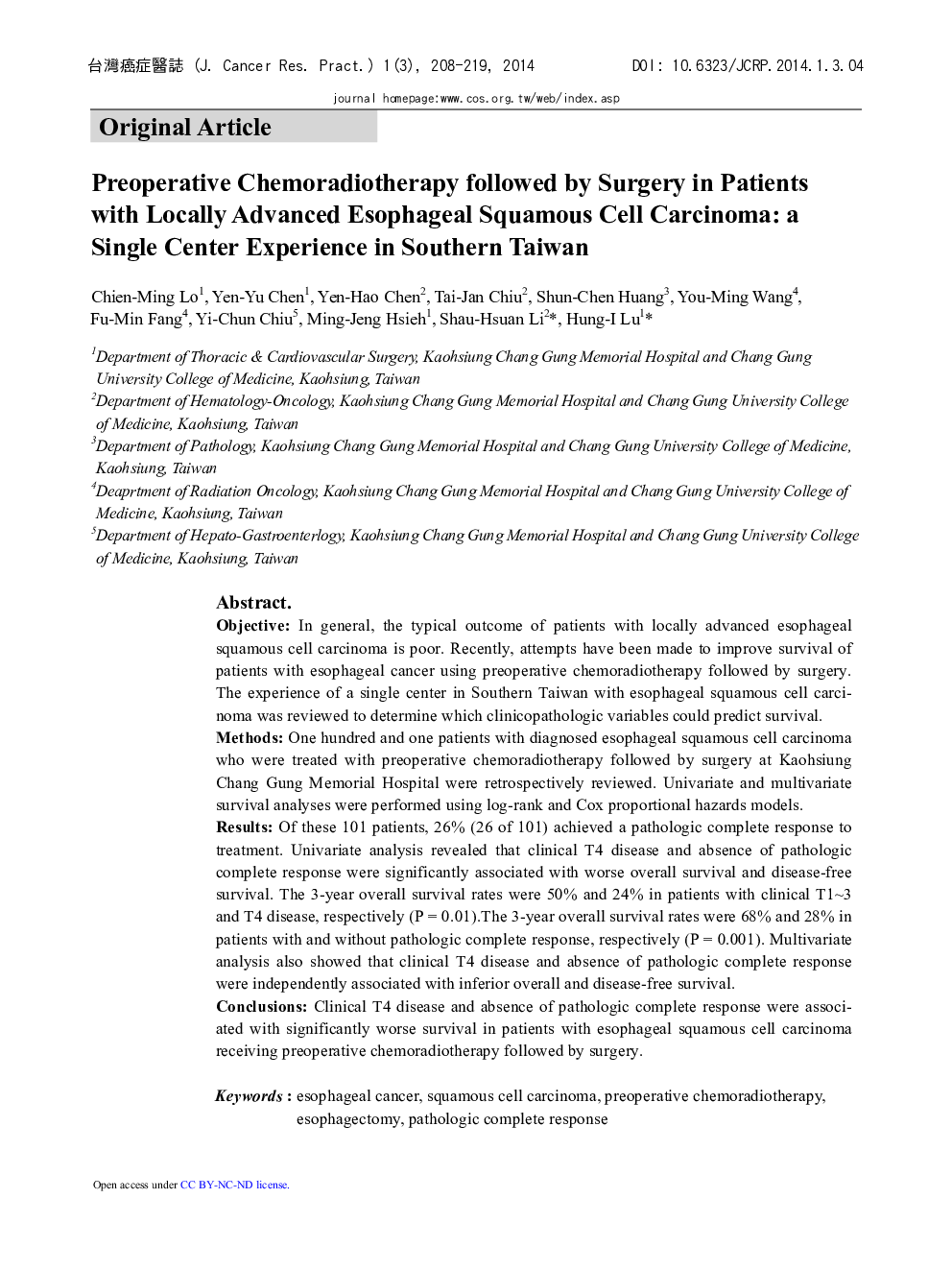| Article ID | Journal | Published Year | Pages | File Type |
|---|---|---|---|---|
| 3988825 | Journal of Cancer Research and Practice | 2014 | 12 Pages |
ObjectiveIn general, the typical outcome of patients with locally advanced esophageal squamous cell carcinoma is poor. Recently, attempts have been made to improve survival of patients with esophageal cancer using preoperative chemoradiotherapy followed by surgery. The experience of a single center in Southern Taiwan with esophageal squamous cell carcinoma was reviewed to determine which clinicopathologic variables could predict survival.MethodsOne hundred and one patients with diagnosed esophageal squamous cell carcinoma who were treated with preoperative chemoradiotherapy followed by surgery at Kaohsiung Chang Gung Memorial Hospital were retrospectively reviewed. Univariate and multivariate survival analyses were performed using log-rank and Cox proportional hazards models.ResultsOf these 101 patients, 26% (26 of 101) achieved a pathologic complete response to treatment. Univariate analysis revealed that clinical T4 disease and absence of pathologic complete response were significantly associated with worse overall survival and disease-free survival. The 3-year overall survival rates were 50% and 24% in patients with clinical T1~3 and T4 disease, respectively (P = 0.01). The 3-year overall survival rates were 68% and 28% in patients with and without pathologic complete response, respectively (P = 0.001). Multivariate analysis also showed that clinical T4 disease and absence of pathologic complete response were independently associated with inferior overall and disease-free survival.ConclusionsClinical T4 disease and absence of pathologic complete response were associated with significantly worse survival in patients with esophageal squamous cell carcinoma receiving preoperative chemoradiotherapy followed by surgery.
